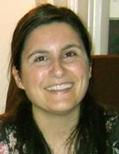Studying at the University of Verona
Here you can find information on the organisational aspects of the Programme, lecture timetables, learning activities and useful contact details for your time at the University, from enrolment to graduation.
Academic calendar
The academic calendar shows the deadlines and scheduled events that are relevant to students, teaching and technical-administrative staff of the University. Public holidays and University closures are also indicated. The academic year normally begins on 1 October each year and ends on 30 September of the following year.
Course calendar
The Academic Calendar sets out the degree programme lecture and exam timetables, as well as the relevant university closure dates..
| Period | From | To |
|---|---|---|
| primo semestre | Sep 15, 2014 | Jan 9, 2015 |
| secondo semestre | Feb 19, 2015 | May 29, 2015 |
| Session | From | To |
|---|---|---|
| prove intermedie (primo semestre) | Nov 3, 2014 | Nov 7, 2014 |
| sessione invernale | Jan 12, 2015 | Feb 18, 2015 |
| prove intermedie (secondo semestre) | Apr 13, 2015 | Apr 17, 2015 |
| sessione estiva | Jun 4, 2015 | Jul 11, 2015 |
| sessione autunnale | Aug 24, 2015 | Sep 9, 2015 |
| Session | From | To |
|---|---|---|
| sessione autunnale | Dec 12, 2014 | Dec 19, 2014 |
| sessione invernale | Apr 8, 2015 | Apr 10, 2015 |
| sessione estiva | Sep 10, 2015 | Sep 11, 2015 |
| Period | From | To |
|---|---|---|
| festività natalizie | Dec 22, 2014 | Jan 5, 2015 |
| festività pasquali | Apr 3, 2015 | Apr 7, 2015 |
| vacanze estive | Aug 10, 2015 | Aug 22, 2015 |
Exam calendar
Exam dates and rounds are managed by the relevant Economics Teaching and Student Services Unit.
To view all the exam sessions available, please use the Exam dashboard on ESSE3.
If you forgot your login details or have problems logging in, please contact the relevant IT HelpDesk, or check the login details recovery web page.
Academic staff
 claudio.baccarani@univr.it
claudio.baccarani@univr.it
 giovanna.caramia@univr.it
giovanna.caramia@univr.it
 tamara.fioroni@univr.it
tamara.fioroni@univr.it

Pavesi Filippo
 filippo.pavesi@univr.it
filippo.pavesi@univr.it
 045 8028237
045 8028237
 luca.ruggeri@univr.it
luca.ruggeri@univr.it
Vaona Andrea
 andrea.vaona@univr.it
andrea.vaona@univr.it
 045 8028537
045 8028537
 marcella.veronesi@univr.it
marcella.veronesi@univr.it
Study Plan
The Study Plan includes all modules, teaching and learning activities that each student will need to undertake during their time at the University.
Please select your Study Plan based on your enrollment year.
1° Year
| Modules | Credits | TAF | SSD |
|---|
2° Year activated in the A.Y. 2015/2016
| Modules | Credits | TAF | SSD |
|---|
3° Year activated in the A.Y. 2016/2017
| Modules | Credits | TAF | SSD |
|---|
| Modules | Credits | TAF | SSD |
|---|
| Modules | Credits | TAF | SSD |
|---|
| Modules | Credits | TAF | SSD |
|---|
| Modules | Credits | TAF | SSD |
|---|
Legend | Type of training activity (TTA)
TAF (Type of Educational Activity) All courses and activities are classified into different types of educational activities, indicated by a letter.
Macroeconomics (2014/2015)
Teaching code
4S00242
Credits
9
Language
Italian
Scientific Disciplinary Sector (SSD)
SECS-P/01 - ECONOMICS
The teaching is organized as follows:
lezione
Credits
7
Period
secondo semestre
Academic staff
Andrea Vaona
esercitazione
Learning outcomes
The course aims at providing training on the fundamentals of macroeconomics: the evolution of aggregate production, fluctuations in income and employment and the role of stabilization policies, the causes of inflation and the determinants of economic growth. Particular attention will be given to issues of present relevance as the evolution of public debt and the determinants of aggregate consumption.
The course is divided into three parts: (i) models for the determination of output and employment in the short term, even in an open economy; (ii) medium-term models for the analysis of inflation and cyclical changes in production; (iii) models for the study of long-term economic growth and its determinants.
Teaching methods consist of lectures, which will develop issues of macro-economic theory, and tutorials, offering exercises often in the form of numerical examples. The slides of the lectures, materials used in the tutorials and possibly other useful readings will be available on the e-learning platform of the University.
Program
1. National accounts.
2. Aggregate demand and the income multiplier.
3. Market goods and money: the IS-LM model.
4. Consumption, investment, government spending.
5. Aggregate supply and demand.
6. Inflation and unemployment.
7. Problems of the open economy and international relations.
8. Growth and accumulation.
O. Blanchard,Scoprire la macroeconomia,Volume 1. Il mulino. ISBN 978-88-15-13219-2.
D.W. Findlay, Esercizi di macroeconomia, il Mulino
Examination Methods
There will be a written exam. It will have two parts. The former one will consist in multiple choice questions, while the latter in exercises.
There are no mid-term exams.
Type D and Type F activities
Modules not yet included
Career prospects
Module/Programme news
News for students
There you will find information, resources and services useful during your time at the University (Student’s exam record, your study plan on ESSE3, Distance Learning courses, university email account, office forms, administrative procedures, etc.). You can log into MyUnivr with your GIA login details: only in this way will you be able to receive notification of all the notices from your teachers and your secretariat via email and soon also via the Univr app.
Graduation
List of theses and work experience proposals
| theses proposals | Research area |
|---|---|
| Proposte di tesi triennali | Various topics |





















